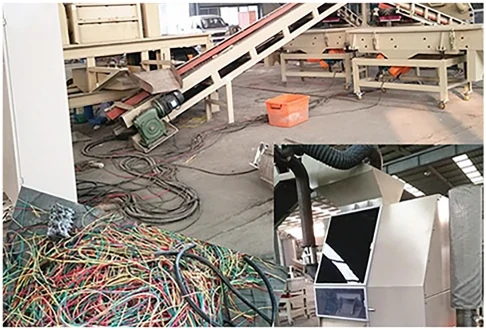

دېكابىر . 18, 2024 13:09 Back to list
How to Dispose of a Broken TV
In the age of technology, televisions have become an integral part of our lives, providing entertainment, news, and a connection to the world. However, like all electronic devices, TVs have a lifespan. When your television breaks, it can pose a challenge to get rid of it responsibly. Here’s a comprehensive guide on how to properly dispose of a broken TV.
1. Assess the Damage
Before you decide how to dispose of your broken TV, it’s essential to assess the extent of the damage. Is the screen cracked beyond repair? Does it power on, but the picture is fuzzy? Understanding the condition of the TV can help you explore your options. If the TV is fixable, you might consider repairing it rather than disposing of it. However, if it’s beyond repair, it’s time to look at disposal methods.
2. Check for Warranty or Repair Options
If your TV is relatively new and under warranty, check with the manufacturer to see if repairs are covered. Some electronics retailers also offer repair services. Additionally, if the model is popular and still in demand, you might find repair shops that specialize in specific brands. Investing in a repair can extend the TV's life and delay the need for disposal.
Electronics recycling is an eco-friendly option. Many communities have e-waste recycling programs that accept televisions. These programs ensure that harmful components, such as lead and mercury, are disposed of safely while allowing recyclable materials to be reused. Search online for e-waste recycling facilities or events in your area. Keep in mind that some facilities may charge a fee for the recycling service.
4. Donate If Possible
If your TV still works, consider donating it. Many charities, schools, and community centers accept working electronics. Ensure that the television meets their requirements, as some organizations do not accept outdated models. Donating not only helps you get rid of the TV but also provides someone else with a means of entertainment.

5. Sell for Parts
If the TV is beyond repair but has some salvageable parts, you might consider selling it for parts. Websites such as eBay, Craigslist, or Facebook Marketplace allow users to list broken electronics. While you may not make much money, selling parts can be a sustainable way to recycle and can help others who are in need of replacement components.
6. Curbside Pickup
Some municipalities offer curbside pickup for large electronic items, including televisions. Check your local waste management guidelines to see if this service is available. If so, typically, you need to schedule a pickup day and may need to adhere to specific guidelines, such as leaving the TV in a designated location.
7. Retailer Take-Back Programs
Many electronics retailers have take-back programs for old electronics, including TVs. When purchasing a new television, inquire whether the retailer offers to take your old one. This can be a hassle-free solution, as they will handle the disposal and recycling for you.
8. Understand the Legal Requirements
Before disposing of your TV, be aware of any local laws regarding electronic waste disposal. Some regions have strict regulations in place about how electronic waste should be handled. Failing to comply with these laws can result in fines.
Conclusion
Disposing of a broken TV doesn’t have to be a daunting task. By assessing the situation, considering repair options, recycling, donating, or utilizing retailer programs, you can ensure the process is environmentally friendly and responsible. Always strive to make informed decisions to minimize waste while contributing to a more sustainable future.
Latest news
Troubleshooting Common Eddy Separator Problems
NewsJul.04,2025
The Role of Metal Recycling Plants in Circular Economy
NewsJul.04,2025
The Impact of Recycling Line Pickers on Waste Management Costs
NewsJul.04,2025
Safety Features Every Metal Shredder Should Have
NewsJul.04,2025
How Industrial Shredders Improve Waste Management Systems
NewsJul.04,2025
How Cable Granulators Contribute to Sustainable Recycling
NewsJul.04,2025